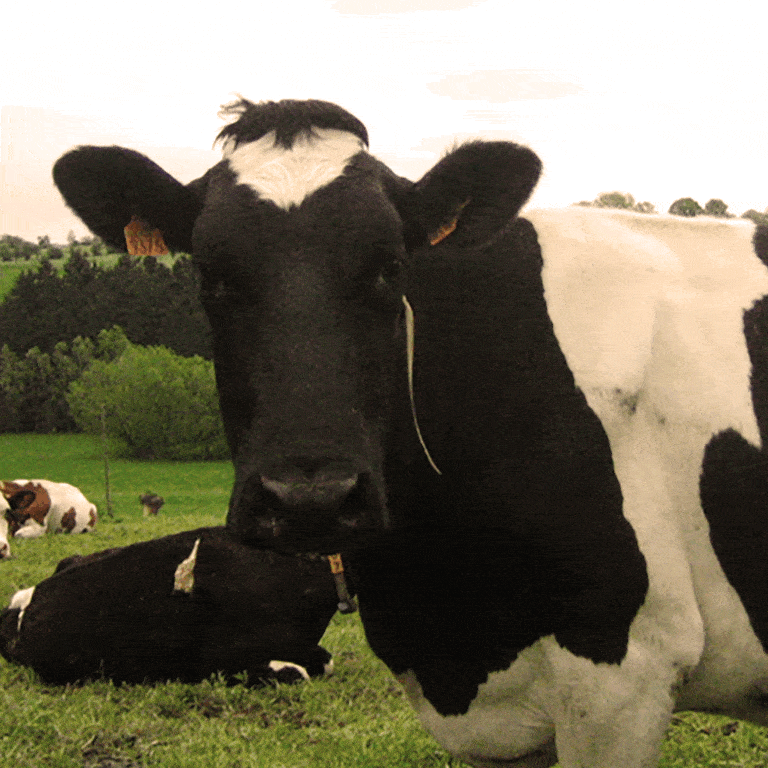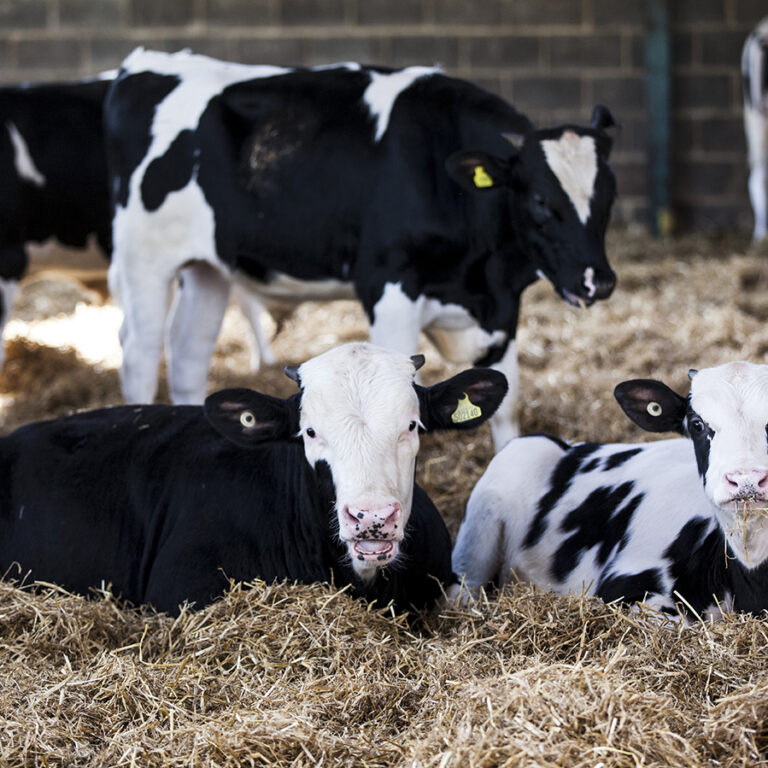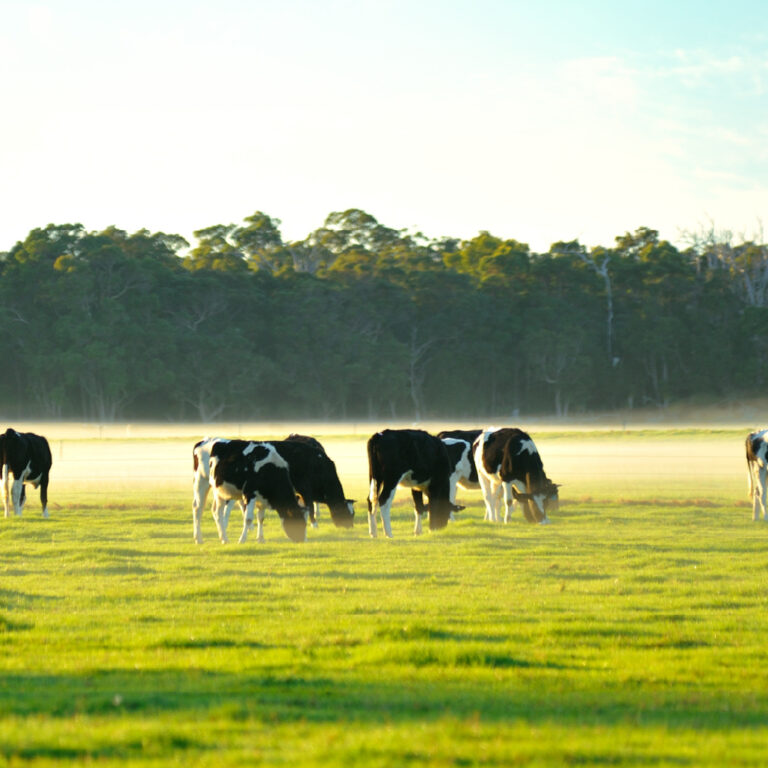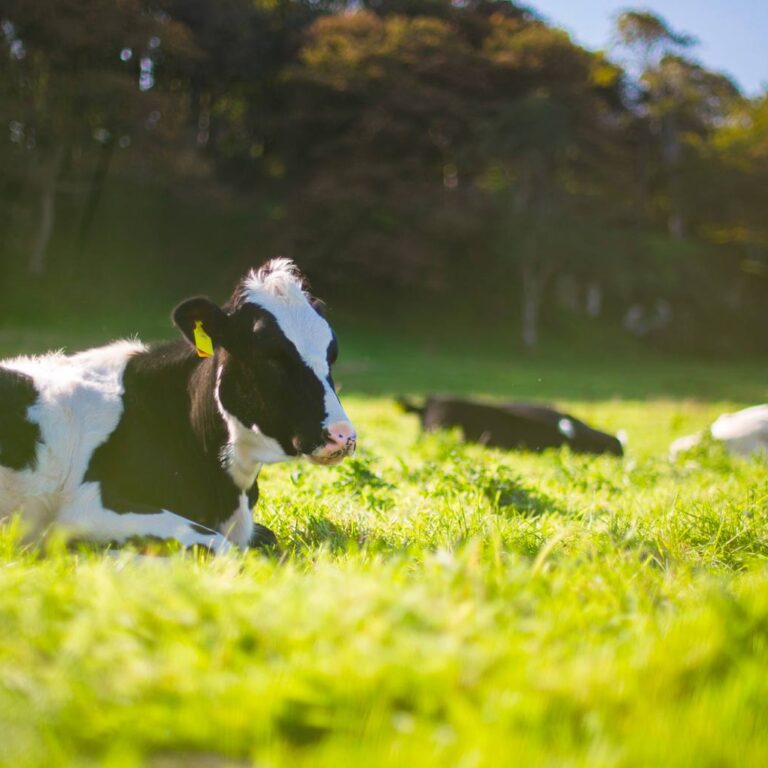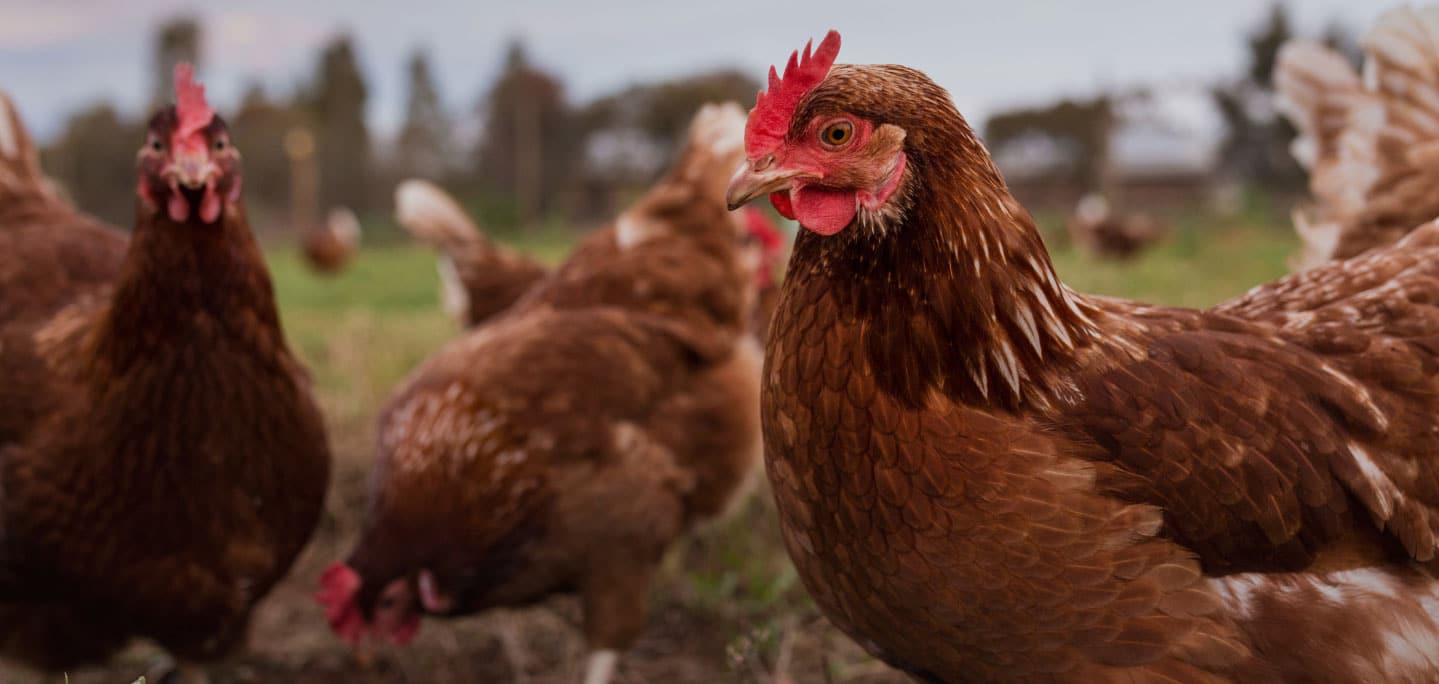As a consumer of animal products I’m conscious of what my choices mean for animals, so what’s the deal with dairy? For most consumers, picking up some milk from the supermarket is routine and there’s no further thought about how it got there. But have you ever wondered about the animal that has produced the milk, yoghurt or cheese that you buy?
Obviously, it comes from a cow but in order for the cow to produce milk they must give birth to a calf every year. Most calves are separated from their mother within twelve hours of birth. Have you ever considered what happens to male calves that are basically a by-product of dairying? What are the health and welfare implications for the cow from being pregnant, lactating and milked in a continuous cycle for several years?
In Australia, we’re fortunate we now have many more humane product choices for our most intensively farmed animals – there’s higher welfare options for eggs, pork, chicken and other poultry readily available in both major supermarkets as well as many independents. What about dairy though?
Many dairy farmers care about the welfare of their animals. I know this because the RSPCA regularly speaks with farmers doing great things to improve the welfare of their animals. For many years, Australian retailers and dairy industry bodies have also welcomed the input of the RSPCA – this is important because it means animal welfare is always on the agenda.
There’s still a lot of work to be done. Cows should be free from lameness, be provided with pain relief for painful procedures, not induced and giving birth to premature calves in order to meet milking timeframes, and bobby calves should be treated humanely and with consideration to their age and vulnerability, or even better, the wastage be eliminated.
The RSPCA is always keen to work with farmers in the dairy industry to move towards these outcomes, but ultimately it also comes down to consumers. As consumers, if we want higher welfare, we need to say we want it. We need to support it when it’s done and we need to pay a fair price for it. Better welfare for animals isn’t cheap and we’ve seen time and time again customers have the power to effect change by voting for better welfare with their wallets.
There’s a lot more to be said about dairy. What can be done to improve the care of bobby calves? There’s been talk about intensification of dairy, where cows are housed indoors all year round, so what does this mean for the future of Australian animals? What more can consumers do to encourage better welfare for dairy cows and their offspring? Does Australia need independent accreditation of animal welfare in dairy, such as RSPCA Approved standards for dairy, so it’s easier to make more compassionate dairy choices?
We’d love to hear your voice in this conversation, so post us your thoughts.

